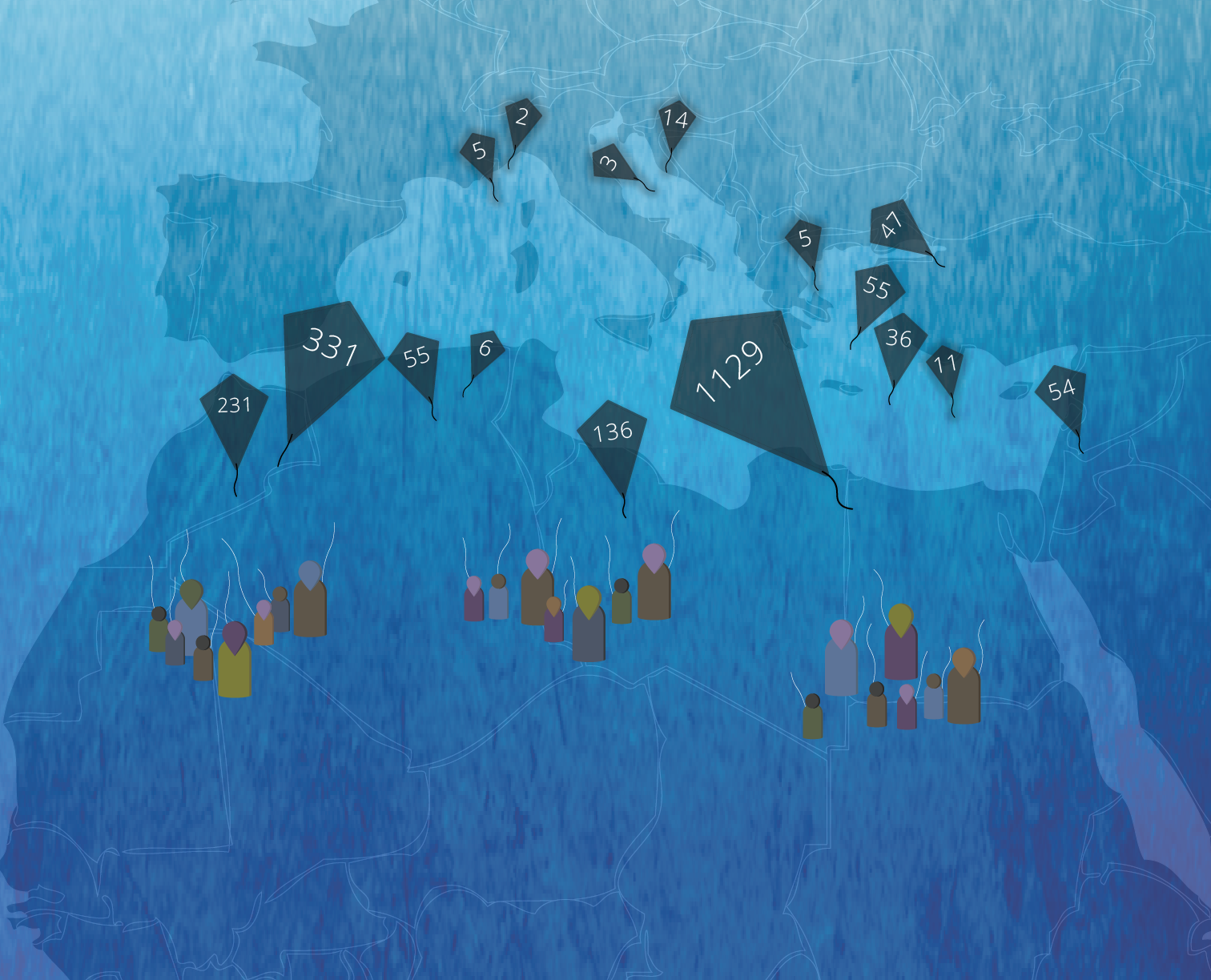We present at the Live UNHCR-MMC Policy Workshop
We present at the Live UNHCR-MMC Policy Workshop
Event: Protection in Mixed Movements: United Nations High Commissioner for Refugees (UNHCR) – Mixed Migration Centre (MMC) Policy Workshop on Protection Challenges on the Central (CMR) & Western Mediterranean Routes (WMR). This event brings together approximately 50 academics, practitioners, civil society advocates, and policy influencers to highlight protection challenges and identify opportunities for advocacy, policy development, and reform of asylum and protection in the context of broader migration management.
Presentation: A telling and an illustrating of loss, hope, action: Families of missing migrants of the Mediterranean
La Terre Pour Tous, Tunisia: Imed Soltani, Marwen Saidi, Gemma Baccini
University of Michigan, Ann Arbor: Odessa Gonzalez Benson (presenter), Bader AlBader (presenter), Vadim Besprozvany, Elena Godin, Antonio Siciliano
When: February 15, 2021
Recording: mixedmigration.org/articles/live-unhcr-mmc-policy-workshop/
Abstract
This Participatory Action Research (PAR) focuses on the narratives of families of missing migrants of the Mediterranean and visualization of such narratives, as part of migrant advocacy efforts. PAR is a collaborative, reflexive form of applied research that analyzes real-world problems and contexts through the experiences of subjects in order to ultimately better their lives. This PAR transpires in a transnational context, between a Tunisia-based migrant advocacy civil society organization, La Terre Pour Tous, and a research team from the University of Michigan in the United States. La Terre works with families of missing migrants to generate awareness and action about the plight of migrants and pursues judicial and legal remedies. The PAR included the creation of information visualizations, curated and publicly exhibited at the University of Michigan in February 2020, and then on to a dedicated online platform for advocacy for La Terre.
In this paper, we query how visual modalities and families’ narratives may cohere into action and research, around issues of migration: not only absence and loss, but also advocacy and voice. Families’ narratives share intimate moments: the night before the migrant son leaves; how departure occurs as planned for some and eloping for others; how communication channels open to allow human trafficking and smuggling; how communication channels break into a silence of not-knowing once Italy is reached. Visualization posters are shared (see below for six examples), as are excerpts from narratives as oral histories. The stories and visual illustrations seek to humanize, and convey messages for policy changes.
While loss and yearning are palpable in their stories and illustrations, what emerges is a message that is much more complex. Loss and yearning coalesce with perseverance, hope, anger, indignance, demand, voice, solidarity, action, for families of missing migrants. This PAR directly responds to the question of the Mixed Migration Center workshop: How do local communities bring to justice the perpetrators of protection violations without placing greater risks upon people on the move? By bringing the migrant plight into closer view, this project argues for making intimate the vastness of the Mediterranean Sea. In color and in quotations, mothers and families emerge up close and personal, and we bear witness not only to tragedy, but also to an ethics of responsibility and conscience. To witness the migrant is to intervene.




